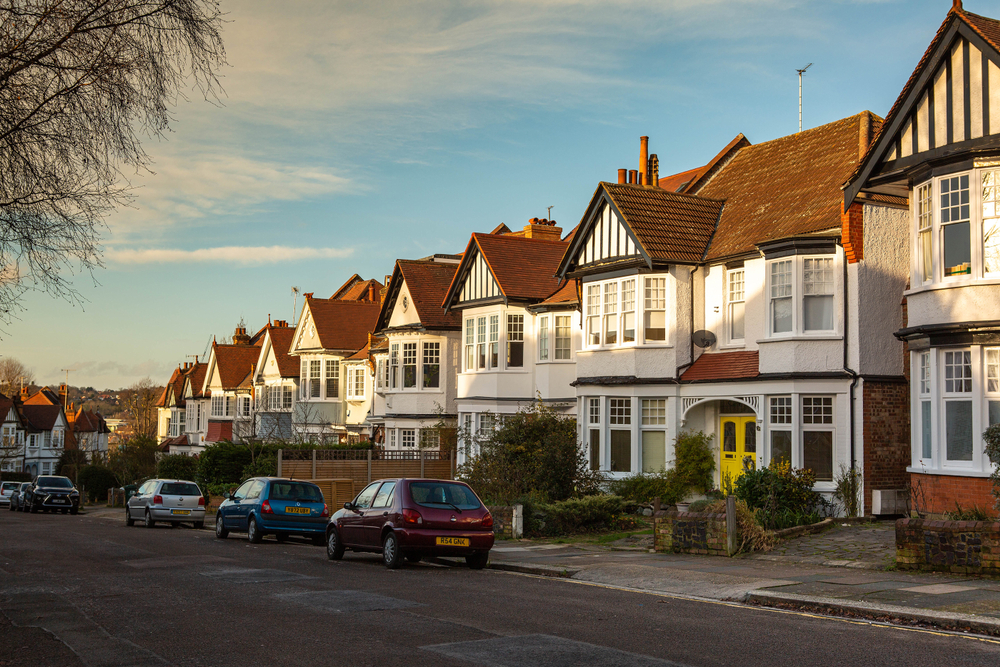
This compares to 4.6% growth in November.
And on a monthly basis, house prices fell by 1.5% as the year came to an end.
This means that the average UK property is now priced at £281,272, which compares to a total of £285,425 in November 2022.
This month, January 2023, marks the 40-year anniversary of this house price index record, which provides some interesting historical perspective.
For example, when the report was first issued in January 1983, the average UK house price was £26,188 – £81,665 with inflation taken into account – and the base rate stood at 11%.
Today’s house price means that prices have gone up 974% over the last 40 years.
And the more things change, the more they stay the same – Halifax says that London was the most expensive place to live in the UK then as it is today.
Halifax Mortgages director Kim Kinnaird sums up 2022 as being, “A mixed picture.” She says: “We saw rapid house price growth during the first six months, followed by a plateau in the summer before prices began to fall from September, as the impact of cost of living pressures, coupled with a rising rates environment, began to take effect on household finances and demand.
“These trends need to be viewed in the context of historic prices. The cost of the average home remains high – greater than it was at the start of 2022 and over 11% more than house prices at the beginning of 2021. The first half of last year was a very strong period for sellers, between January 2022 and August 2022, the average cost of a home rose by over £17,000 to £293,992 (growth of 6%), setting a new record high.
“As we enter 2023, the housing market will continue to be impacted by the wider economic environment and, as buyers and sellers remain cautious, we expect there will be a reduction in both supply and demand overall, with house prices forecast to fall around 8% over the course of the year.”
Kinnaird concludes: “It’s important to recognise that a drop of 8% would mean the cost of the average property returning to April 2021 prices, which still remains significantly above pre-pandemic levels.”
The Guild of Property Professionals chief executive Iain McKenzie comments: “There’s no need to panic, as a readjustment in the market was to be expected following more than two years of inflated house prices.
“Fortunately for sellers, the demand for quality housing is still high, and many areas of the country are still seeing a shortage of stock, which will keep prices buoyant in the months ahead.
“Pessimism over the future of house prices may be misplaced. Employment figures remain strong, and there are signs we may soon see falls in the wholesale fuel prices, which have helped drive up inflation and the cost of living over the past year.”
He continues: “The effects of the cost-of-living crisis will continue to determine house prices in 2023, as prospective buyers take mortgage affordability into account before signing on the dotted line. Inflation must be brought under control in order to restore confidence in the property market.”
And Hargreaves Lansdown senior personal finance analyst Sarah Coles points out: “The typical three-month lag between agreeing a sale and completion means this reflects buyer confidence in September, which only included a single week after the mini-budget.
“A major chunk of these sales were based on mortgages that had already been approved, so the chaos unleashed in the mortgage market by Kwasi Kwarteng’s announcement won’t necessarily have personally affected these buyers. It means this price drop is a product of the gradual easing of enthusiasm for property at the start of the month, and the collapse of confidence in the final week.
Mortgage rates have gradually dropped back from the highs in the aftermath of the mini-budget, but remain significantly higher than before the chaos kicked off, and the shock of the hikes has taken a toll.
“As prices continue to drop back each month, it persuades more buyers to back away, and it’s only a matter of time before we start to see this translate into annual price drops.
“How fast and how far they fall will depend to an enormous extent on the wider economic picture, and how deep the recession turns out to be. However, with Halifax predicting declines of 8% this year, we can be fairly certain things aren’t going to be pretty.”



